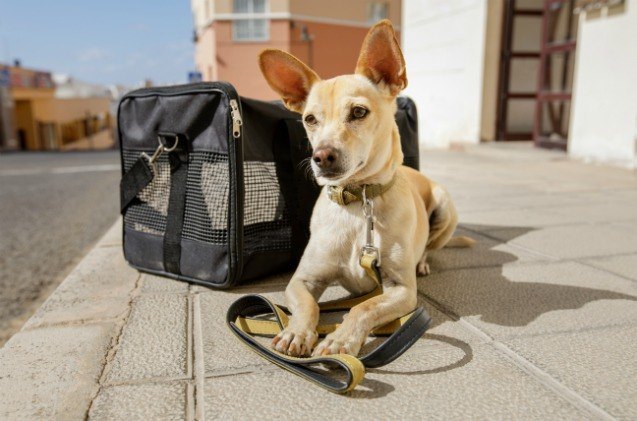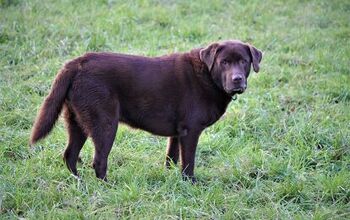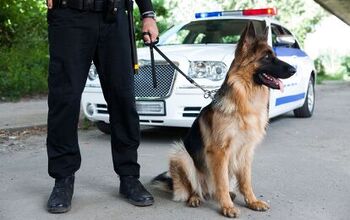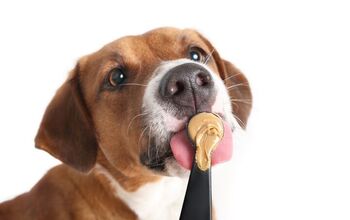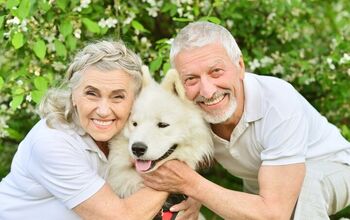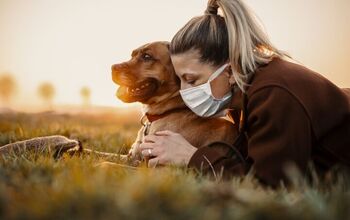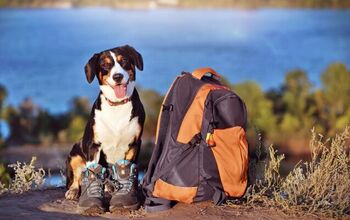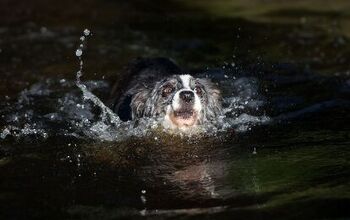COVID-19 Leaves Family Pets Stranded Due To Canceled Flights

According to a Reuters article, more than 1000 pets are stranded worldwide because of border closures and flight cancellations countries are employing to stop the spread of SARS-CoV-2, the virus that causes COVID-19.
Several international pet transport companies are finding it difficult to get pets back to their parents, and pet parents are desperately looking for alternatives.
Related: How You Can Help Your Local Shelter During COVID-19 Crisis
According to the article, Guy Nizan and his family flew from New York to Israel for a family emergency in March. They didn’t take their six-year-old German Shepherd mix Gula with them. Instead, their dog stayed with a pet sitter.
Of course, the COVID-19 outbreak across the world changed flight schedules and borders closed, and that meant that the Nizan family wasn’t going to return to New York any time soon. It also mean that poor Gula was without her family, while the Nizans scrambled for a way for them to be together again.
They were lucky; it took two months, but they found a spot on an Israeli airline’s freight flights.
Others have not been so lucky. When Frances Hayter and her husband Alan finished an 8-month work assignment in Texas, they had to leave their 10-year-old Abyssinian cat Indigo behind when they returned on one of the last flights from the US back to their home in Australia. They weren’t allowed to take Indigo with them, and no airlines currently transport pets to Australia as they have strict animal checks and regulations that are required for transport.
For the Hayters, leaving Indigo felt like leaving their child. Indigo is currently being boarded with a veterinarian in Houston, and has been with them since March 18. Indigo is one of the 20+ Australian Animals stuck in the states while Pet-Express owner Scott Williams tries to find a way to get them reunited with their families. Williams says that he’s trying to arrange a charter flight to do so, but even in the best of situations, transporting a pet to Australia can cost thousands of dollars. The Coronavirus restrictions are only increasing the prices required for pet parents to pay to have their furry family members reunited, and that’s if flights are even possible.
Related: Therapy Dog-In-Training Brings Comfort To Hospital Staff Fighting COVID-19
Most major airlines in the U.S. have already cut their passenger flight loads by 90% or simply suspending the pet programs because they were fiscally irresponsible or not able to be continued without risk to the humans involved in transport.
IAG Cargo is a sister company of British Airways and it still transports pets, but they’re only one of a handful of carriers. They fly dogs from New York to London daily. Ross Hayes is the deputy manager of London’s Heathrow Airport animal reception center. He said the hope is that more carriers turn to transport cargo, pets included, to recover some of the revenue they’ve lost in passenger fares.
Pet transportation is only a small portion of the $65 billion air cargo market, and typically, has been done as a service to maintain passengers. This means that pets and their parents may be separated for quite a while.
Unless they’re able to be driven, which is an alternative more pet parents are seeking. Sunny Summers is the owner of Exec Pet Transportation. She says that demand for driving pets across the country in vans has increased over 25% since mid-March when flights began to cancel.
But if it’s more than driving distance that separates you and your pet, or your pets are preventing you from flying back to your homeland as some Australians in the U.S. are dealing with, it may mean you may need to find new homes for your pets.
And that’s just another tragic loss that COVID-19 leaves in its wake.

More by Lori Ennis



